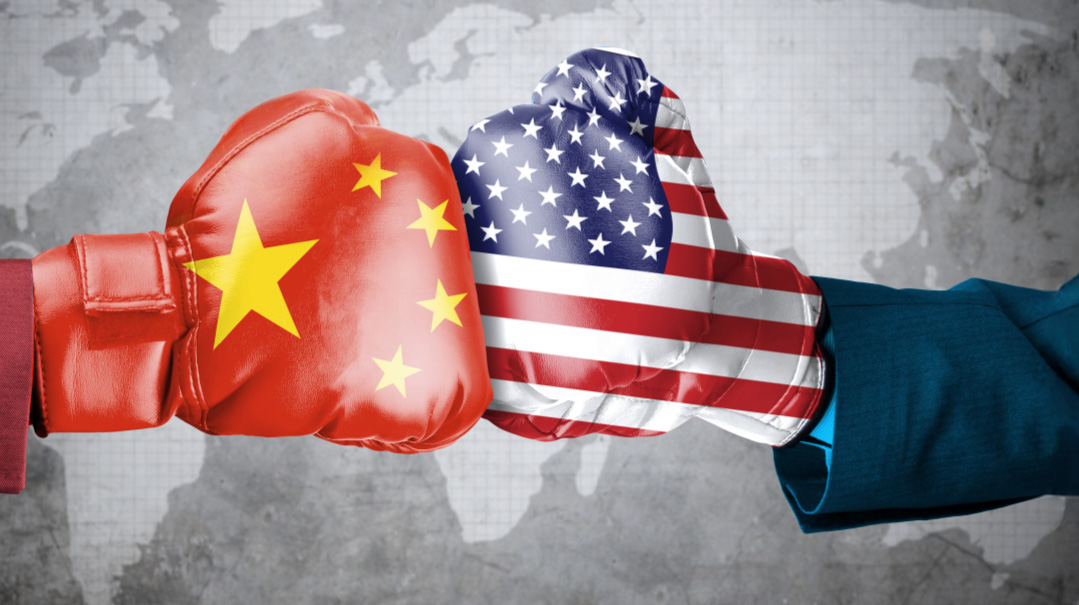A Few Minutes with Danny Ayalon

Is this the end of an all-too-brief honeymoon between the Democratic administration and the unity government in Israel?

Barely two hours had passed from the swearing-in of Naftali Bennett’s government when he received his first congratulatory call. At the other end of the line was US president Joe Biden, wishing him success at the post. The context was clear: the administration was interested in the success of the new government in Jerusalem, hoping to turn a new page with Israel. To this end, the White House agreed to neglect the Palestinian issue almost completely, focusing instead on areas of agreement.
During the Biden-Bennett meeting at the White House two months ago, the words “two-state solution” didn’t cross the president’s lips even once. Instead Biden offered a few noncommittal words about “regional prosperity.” This wasn’t a trivial gesture. Here too was evidenced the administration’s desire not to complicate matters for Bennett and his new coalition, in the fear that it will collapse and throw Israel back into the endless cycle of elections, at the end of which parties such as Meretz, Labor, and Ra’am may not be in the coalition.
Bennett, for his part, toned down his remarks against the Iran nuclear deal, which the US aspires to rejoin. With this, both sides tried to revive the old state of affairs in which Washington and Jerusalem laundered their dirty linen in private without publicizing their disputes.
But last week, something changed. It started with Defense Minister Benny Gantz’s labeling of six Palestinian NGOs as terror groups. This step drew not only open criticism from the State Department, but also a clarification that Israel had acted alone without notifying the administration in advance. Israel countered that they had in fact alerted the Americans, and the State Department repeated its claim that no, they hadn’t received a heads-up. The whole farce was public. And if this wasn’t enough, the State Department also harshly critiqued the government’s decision — again Benny Gantz’s — to authorize 3,000 housing units in the settlements.
So what’s going on? Is this the end of an all-too-brief honeymoon between the Democratic administration and the unity government in Israel?
To get some perspective on this I turned to Danny Ayalon, former deputy foreign minister and former Israeli ambassador to Washington, someone who understands the two countries’ relationship better than most.
Things appeared to be going smoothly between the two new governments for months, and then turned south seemingly overnight. What happened?
These are foreseeable conflicts that have been part of Israeli-American relations for decades. At the heart of the dispute was always the Palestinian issue. From 1967 to this day, every president has been in favor of a two-state solution and Israeli territorial concessions, ever since the famous UN Resolution 242. Every president was opposed to the settlements. The only exception, in fact, was Trump. Biden is merely following in the footsteps of his predecessors, Republicans and Democrats alike.
In other words, you’re saying we should have seen this coming.
This dispute isn’t a surprise. Smart diplomacy is about managing this friction without allowing the rope to fray. About how to make the separation between bilateral issues — arms deals, the economy, intelligence sharing, etc. — and the Palestinian issue. The goal is to not allow the Palestinian issue to spill over into bilateral issues as it did in 1991, when Bush senior halted $10 billion in loan guarantees, which Israel needed in order to absorb immigration from the Soviet Union.
The second axis of dispute in recent years is Iran. Israel expected, and still expects, that the US will get tougher on Iran and not allow them to buy time by drawing out negotiations. Israel can see that Iran continues to deceive the world without anyone slamming their fist down on the table and saying “enough.” Without the threat of the military option or any other credible threat, the Iranians will do nothing.
Those are the two points of contention. The two are not necessarily interconnected. But let’s look at Gantz and the security establishment. From his perspective, we’re engaging the Americans, sharing more and more intelligence, but they haven’t budged an inch on Iran. So he has little motivation to be more cautious and disciplined and fall in line with the Americans’ wishes.
But what motivates Gantz, as head of a center-left party, to promote construction in the settlements? Some saw it as Gantz throwing a wrench into the coalition’s works.
It could definitely be a political matter. It was clever, because in the same breath of announcing 3,000 housing units in the settlements, he also added housing units for the Palestinians.
So what is the government aiming for? When it was formed, they said its focus would be domestic — raising taxes, paving roads. But ultimately this government has brought the Palestinian issue back into public discourse after it had languished for years .
You’re right, but they’d counter that the government’s basic guidelines said nothing about not building in the settlements. What they said is that they wouldn’t annex.
Why do they always try to square the circle? The argument is always that we’re not building new settlements but simply building within the existing contours. The fact is that for all this friction, 54 years have passed and it’s still working. We build, they condemn; we build, they condemn. But understandings are reached. And now, too, it won’t stretch the rope too far. The Americans really are furious, it’s not just for show. But at the same time, they won’t punish Israel like they did in 1991.
What’s the story with the American consulate, and why is it so controversial?
It was a situation that got out of hand. The Americans made the decision during Netanyahu’s term and made a promise to the Palestinians. And the Palestinians announced it publicly. The Americans didn’t deny it, so Bennett inherited this as a fact.
Of course Bennett and the government’s right-wing elements stated their opposition to it. The Americans are considerate of Bennett’s needs, because they don’t want Netanyahu to come back. On the other hand, they made a promise. So they need to do some juggling.
They aren’t taking it back, but neither have they been clear about their intentions going forward, the goal being to give Bennett time to pass the budget. Once that happens, I expect they’ll go into high gear, and if they decide to pursue the consulate with everything they’ve got, then Israel will get something in return.
This could turn into a serious diplomatic confrontation. Israel is the sovereign state, and per the Vienna Convention, you can’t build a consulate in another state’s territory. So officially Israel can scupper it. But the Americans could then say, “Even without your consent, we’ll turn the consulate general on Agron Street into one primarily serving Palestinians.” Another option is a diplomatic solution of one kind or another. Maybe giving the Palestinians some other prize, such as opening a PA mission in Washington.
Bennett leads a faction controlling six seats. How is he treated by world leaders?
The truth is that he’s made a good impression so far, with Biden, Blinken, and even Putin. He’s a talented guy, what can I say? He’s also a quick learner. Then again, he was a cabinet member, so it’s not like he’s a stranger to this scene. All in all, world leaders see him as “the guy who isn’t Netanyahu.” After that, interests remain the same and so do the policies of the different countries.
China and the US are on a collision course. How can Israel navigate between the two?
It’s very difficult. I was caught up in the center of this issue in 2003 with the crisis over Israel’s sale of drones to China. Before that there was the Phalcon spy plane incident. There’s no getting away from it, it’s a complicated subject.
The formula is simple enough. On the one hand, we have to be very straightforward with the US concerning dual-use technology, and at the same time maintain agriculture, trading, and infrastructure ties with China. But the Americans are now against infrastructure as well, because they see that China is using its Silk Road strategy to cast its net around the world, and this poses a strategic threat. So here too, we have to be careful.
But if we have to choose between China and America, we’re sticking with America, it’s not even a question. It’s not just because of what we get in terms of security, but also in terms of diplomacy. Our sole defender at the UN is America. China invariably votes against us in condemnatory resolutions. I have no doubt that China will be irritated, and this could harm economic ties. But if that’s the price we have to pay, we’ll pay it.
Is there a nuclear deal Israel could live with?
Yes, there is a deal Israel could live with. We have the experience of 2018, when we pressured the US into exiting the deal, and it didn’t stop Iran’s march to a bomb — quite the contrary. They’ve advanced to a point they never reached before, and Israel is not militarily prepared. Suddenly we see that any plans for a military strike are on the shelf or in the freezer, and we’d have to invest millions more for Israel to have the military capability.
So if the Americans return to the deal — which wasn’t a good one, but it buys us time — then that’s in Israel’s interest, even if we won’t admit it. Israel rightly feels the most threatened. Although militarily and strategically, Israel faces the highest strategic risk, the goal must be an agreement.
What kind of agreement? A longer and stronger agreement, as Biden said. Can this be achieved? Not in one blow. Maybe in stages. It’s preferable not to publicly come out against it. Israel will make some noise and keep alive the military option. But if a deal is reached that’s no worse than the 2015 one, in the understanding that the dialogue will continue, Israel will have no choice but to accept it.
(Originally featured in Mishpacha, Issue 884)
Oops! We could not locate your form.







